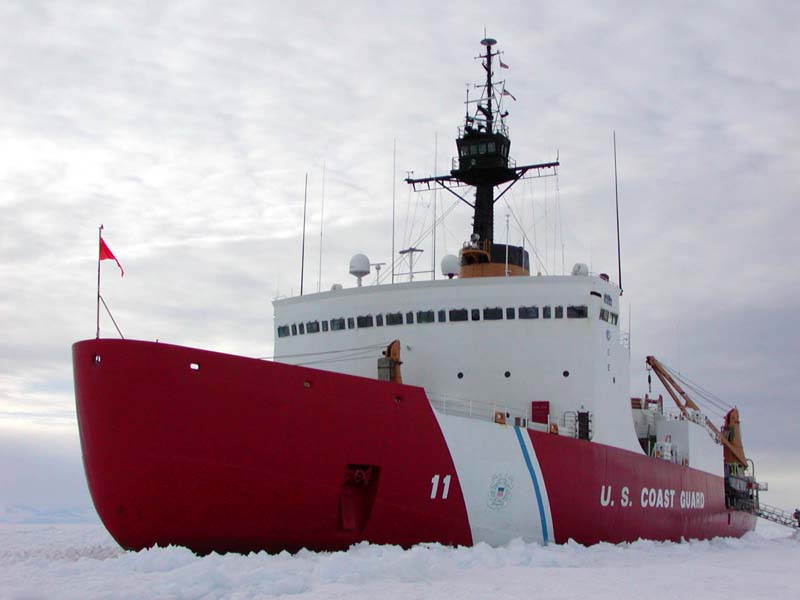Chip in to keep stories like these coming.
August 14 was the 30th anniversary of Council of Canadians activists dropping a flag on the deck of a United States Coast Guard ship in Arctic waters. The Council of Canadians had been launched on March 11, 1985 with a media conference and this action took place just five months later.
At issue was the U.S. icebreaker Polar Sea making its way through the Northwest Passage from Greenland to Alaska without asking formal permission from the Canadian government. The United States took the position that the passage was an international strait and that it needed only to notify Canada about the presence of its ship, not seek permission for it to be there.
Canadian public opinion regarded the U.S. ship in Canadian waters as an unwelcome breach of Canadian sovereignty.
University of Alberta students and Council of Canadians activists — 20-year-old Louanne Studer (who is also Council of Canadians founder Mel Hurtig’s stepdaughter) and 21-year-old David Achtem — joined with Inuit Tapiriit Kanatami (ITK) representatives — Roger Gruben and Eddie Dillon — to take action.
As reported by the Chicago Tribune at that time, “As the Polar Sea churned its way through the waterway, encountering ice 18 feet thick at some points, the nationalistic Council of Canadians chartered a Twin Otter aircraft to drop a flag-wrapped canister filled with protest leaflets on the icebreaker’s deck.”
The Ottawa Citizen added, “The group also landed on an island at the north end of the Prince of Wales Strait, about 2,200 kilometres north of Edmonton. A tent was erected to symbolize that the area is still used for fishing and hunting by Inuit. Canadian and Northwest Territories flags were also set up.”
And the Associated Press noted back then, “Hurtig said he has received close to $1,000 in donations from Canadians to help pay for the protest, which he said will cost $10,000. He also said his group has been ‘flooded by phone calls beyond our capacity to answer’ unanimously supporting the council’s stand.”
The United States never did recognize Canada’s claim over the Northwest Passage, but Canada and the U.S. did reach an agreement two years later that required the U.S. to ask permission before navigating the disputed waterway.
Today, the Council of Canadians stands with Indigenous peoples and those around the world calling for environmental justice for the Arctic and its peoples, as well as for recognition of their traditional territories. Most recently, our Northwest Territories chapter wrote a letter to the editor opposing the proposed 100,000 barrels per day Arctic Gateway tar sands pipeline from Fort McMurray to Tuktoyaktuk.
Photo: USCGCPolarSea by w:en:User:ScottyBoy900Q/Wikimedia Commons
Chip in to keep stories like these coming.




